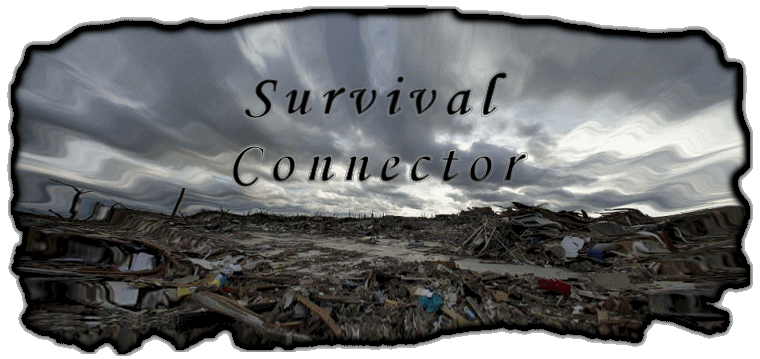|
Wildfires Tornadoes Floods Landslides Earthquakes Volcanoes Tsunamis Winter Storms Droughts Pandemics |

|
War Nuclear Biological Chemical Radiological EMP Collapse Depression Riots Gangs |
|
|
As an individual, a member of your family or of your community, you can expect to be faced with a disruption
of normalcy during your lifetime, whether by natural disaster, war, terrorist attack, infrastructure failure
or economic collapse. This will compromise food supplies, civil order and personal safety. Whether or not you,
your family or your community survives such an event will depend on your level of preparation and both your
ability and willingness to respond. No matter where you live, you are at risk of some hazard: earthquakes,
hurricanes, floods, levy failures, wildfires, volcanoes, tornadoes, mudslides, dam failures, droughts, nuclear
meltdowns, or chemical, radiological or biological events… not to mention riots, gang violence, inflation, food
shortages and foreign attack. Having worked in Federal emergency management for the last 8 years, I have seen
communities go without power, water, sewer, food and security for days and sometimes weeks following a common
natural disaster. Though our government warns that citizens can expect to be on their own for the first 72 hours
after an event, few are prepared for even that short a disruption. Even if a national or world-wide disruption
of order does not occur in our lifetimes, becoming more self-sufficient, having a family emergency plan and being
prepared is simply common sense.

A Precarious State It also cannot be ignored that the situation in American and world-wide is precarious. A complete economic collapse was not prevented by government action over recent years; it was delayed and inevitably amplified by the creation of an artificial bubble, inflated by the printing of money, manipulation of interest rates and accumulation of debt. When that bubble bursts, we will fall into a deep depression, likely far worse than this nation has ever known. Already, looting and rioting has spread around the world as the result of political and economic turmoil and the U.S. is not immune. A complete economic collapse might still be avoided, but the value of the dollar and of our homes have already fallen, jobs are scarce, businesses have been strangled to the point of bankruptcy and prices for all commodities continue to soar. This alone is enough to encourage Americans to begin thinking about what it will take to maintain possession of our homes and feed our families. 
Our nation’s food and energy supplies will be disrupted and civil order will fail. The only question is to what extent and for how long. Whether it is for a few days in one state during a debilitating ice storm or a national depression stretching on for years, the only hope you will have of protecting and providing for yourself and your family is to develop a detailed all-hazard plan, prepare a stockpile of resources and develop methods for replenishing those resources. You cannot depend on your government, the generosity of your nation or of the world at large to ensure your health and safety. It is only on you, your family and likeminded individuals that you can hope to depend and that can happen only if you prepare and respond appropriately. Part of that preparation involves developing networks with others in your area for information sharing and future trading. One family cannot produce everything they need to survive but we may be able to attend to most of our needs while also producing things others will find valuable enough to trade for in order to meet other needs. As we plan we can also share information and help each other learn the skills we will need to get through the difficult times ahead. We Will Need Depending on the scale of the disruption, the government may be able to respond or, in the event of a national or world economic collapse, our government will realistically be fortunate to maintain its own basic operations, let alone ride to the rescue of its citizens. We must plan for the worse even as we hope for the best. We must plan to provide essential functions for our families ourselves at least until normal services and order are restored, if they are at all. As an average American family, we don’t have many answers but there are some basic things we’ve come to realize. We know we will need:
2) Stockpile of essential supplies (bulk food, medical supplies, tools, etc.) 3) The capacity to produce, harvest and preserve food, to hunt, clean and preserve meat 4) The capacity to provide heat in the winter 5) The capacity for self-defense 6) The skills to actually perform these essential functions 7) A network of like-minded people for barter 
|